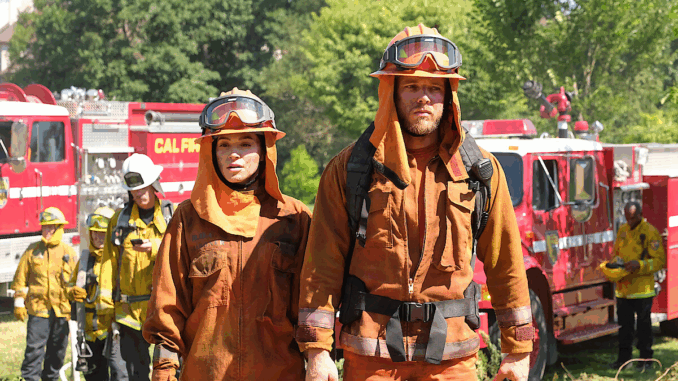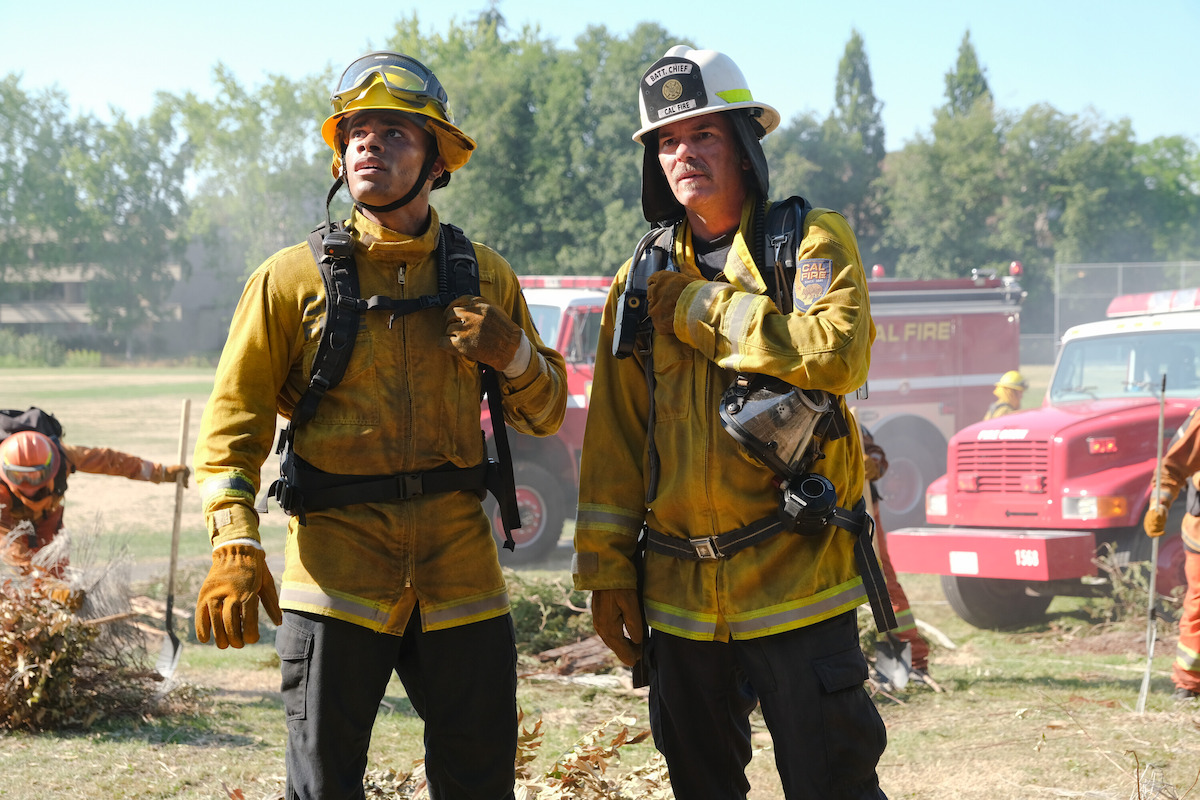
When Fire Country premiered, it promised high stakes, moral complexity, and emotional weight and by the end of Season 1, it delivered a finale that shocked many viewers. The series isn’t just about firefighting; it’s about redemption, sacrifice, and the blurred lines between past and future. That ending turned everything upside down and left us hungry for more.
In this article, I’ll walk you through what Fire Country is all about, break down the major beats of Season 1, dissect the finale, examine reactions, and tease what that ending implies for future seasons. Let’s jump in.
What Fire Country Is: Premise and Core Themes
Basic Setup
Fire Country centers on Bode Donovan, a troubled young convict who joins California’s fire camp rehabilitation program. His hope: to shorten his sentence by serving wildland firefighting duty. The catch? He’s assigned to his old hometown region facing friends, enemies, and his own guilt.
Key Themes at Play
-
Redemption and Guilt: Bode’s past crimes, regrets, and his attempts to make amends drive much of the internal tension.
-
Identity & Belonging: He must re-enter a community that’s changed, while questioning whether he belongs.
-
Sacrifice & Duty: Firefighting isn’t glamorous. It’s dangerous, exhausting, emotional.
-
Moral Ambiguity: The show doesn’t paint characters as purely good or bad choices are messy, consequences linger.
With those foundations, Fire Country builds tension steadily until Season 1’s final moments.
Season 1 Recap: The Journey to the Finale
Bode’s Early Stakes
Bode initially volunteers for the fire camp as a route out of prison. He’s trying to prove he’s not defined by his past. But his return to the region stirs old relationships, grudges, and emotional scars.
Key Relationships: Friendships and Friction
-
Vince & Sharon Leone: They are authority figures and parental presences. Their trust in Bode is tentative.
-
Manny: Bode’s father figure inside the station; Manny’s own expectations weigh heavily.
-
Gabriella (“Gabi”): A romance forms despite the odds, creating emotional stakes outside the fireline.
-
Other Inmate Firefighters: Allies and rivals these dynamics test Bode’s loyalty and resolve.
Rising Tension & False Moves
As Bode proves himself, the pressure mounts. There are smaller setbacks: failed tests, doubts from superiors, rumors. He’s always walking a tightrope — one misstep threatens to undo everything.

The Season 1 Finale: What Went Down
2 Big Twists: The Drug Test and Bode’s Sentence
One of the final punches: Bode’s drug test comes back positive at the exact moment he was due to be released. That test result threatens to send him back to prison. The timing couldn’t feel more brutal.
In a powerful, emotional note, Bode tells Gabriella: “Start your life. Without me.” It’s a gutting moment of love and sacrifice as though he’s pushing her away to spare her the burden of his failure.
The Mudslide Rescue
Also in the finale, station crews respond to a massive mudslide in Edgewater. It’s a rescue fraught with danger and symbolism: nature’s unpredictability, the thin line between saving and losing, and how fragile life is.
The juxtaposition of public rescue and private collapse (in Bode’s world) makes the finale sting.
What That Ending Means: Interpretations
Bode’s Sacrifice & Self-Protection
By pushing Gabriella away, Bode sacrifices love to protect her from pain. He assumes responsibility not just for his mistakes but for shielding those he cares about from fallout.
Trust Shattered (or Tested)
The positive drug test raises questions: Was the test tampered with? Is Bode being set up? The show leaves open whether corruption or betrayal is at play.
New Beginning vs. Forced Halt
The finale doesn’t feel like a clean break. It feels like a gear slam. Bode’s path forward is uncertain — the story isn’t closing; it’s pivoting. That ambiguity sets up tension for Season 2 and beyond.
Fan Reactions & Criticism
Praise for Emotional Weight
Many fans lauded the raw emotion: Bode’s heartbreak, the cruel irony of the drug test, the layered rescue — they said the show earned those moments, built toward them.
Criticism Over the Negativity
Others felt the finale leaned too hard on tragedy. Some described it as overly bleak, punishing Bode more than justice might demand. A few worried it hamstrung future possibility by burdening Bode with too much weight.
Discussion on Pacing and Setup
Some viewers wished for more payoff in Season 1 leading into the finale. They argued certain plot threads felt underdeveloped until the end. But even critics agreed: you won’t forget that final scene.
What to Watch for in the Future — Implications from Season 1
Who’s Behind the Drug Test Result?
Is it sabotage? Conspiracy? A rival? Season 1’s finale leaves this open, and this mystery promises to drive future conflict.
Gabriella’s Fate
How does she rebuild without Bode? Will she fight for him? Will the show let her have agency beyond waiting?
Do Bode’s Relationships Crack or Harden?
Vince, Sharon, Manny — trust will be tested. Will they stand by him or fall away? The foundations laid in Season 1 set the emotional pressure points.
Bode’s Inner Journey
Will he fall into despair or find purpose? Will he accept help or continue to isolate? His internal growth is now more crucial than ever.
How Season 1 Laid Strong Foundation
Strategic Foreshadowing
The writers planted clues about tests, betrayal, stress, and danger that later episodes revisit. Those seeds pay off if looked back on.
Character Depth Over Explosions
Sure, there are fires and rescues — but the show rooted its drama in characters first. The fires reflect internal flames. That pay makes the finale hit harder.
Balancing Hope and Consequence
Even as Bode tries to fight for redemption, the show never promises it’ll be easy. That balance makes the emotional turns feel earned, not melodramatic.
Why the Ending Was Risky — And Rewarding
Risky endings alienate some fans. A positive test, a forced goodbye, a cliff in rescue — that’s a lot to swallow. But it’s also the kind of bold closure that sticks. It tells viewers: this show doesn’t coddle you. There will be pain, loss, sacrifice. And maybe, just maybe, redemption beyond that.
Comparisons With Other TV Endings
In drama series, finales often swing one of two ways: payoff or cliffhanger. Fire Country chose the latter — with emotional weight. It reminds me of shows that end with simultaneous loss and hope, leaving the door open but barely ajar. The greatest stories aren’t about smooth endings — they’re about life’s messy turning points.
Conclusion: The Fire That Remains After the Flame
Season 1 of Fire Country ends not with fireworks, but with a slow burn. It leaves Bode’s fate uncertain, his relationships fractured, and his spirit tested. But it also leaves possibility. Love may seem lost, but hope flickers. The show proved it will hold nothing back — pain, heartbreak, love — all are fair game.
If you watch Season 2 or beyond, you’ll see how that ending becomes not just a memory but a compass: where Bode goes next, who he loses, how he rebuilds. And that, for a first season, is bold.
Frequently Asked Questions
1. Did Bode really fail the drug test in the Season 1 finale?
Yes — the positive test result is the final blow to his release plans, casting doubt on his freedom.
2. Why did Bode tell Gabriella to start her life without him?
He pushed her away to protect her from the fallout of his failures and uncertainties. It’s an act of love and sacrifice.
3. What role did the rescue mission (mudslide) play in the finale?
It acted as contrast and symbolism: public rescue versus personal collapse — life saved, but his own future in jeopardy.
4. Was the ending meant to be a cliffhanger or a full stop?
More of a pivot than a full stop. It closes some arcs but leaves the storywide tension open and active.
5. How did the relationships Bode built in Season 1 set up the finale’s emotional stakes?
His bonds with Vince, Sharon, Manny, and Gabriella built trust, love, and expectation — which made the betrayal, test, and breakup hurt more deeply.
